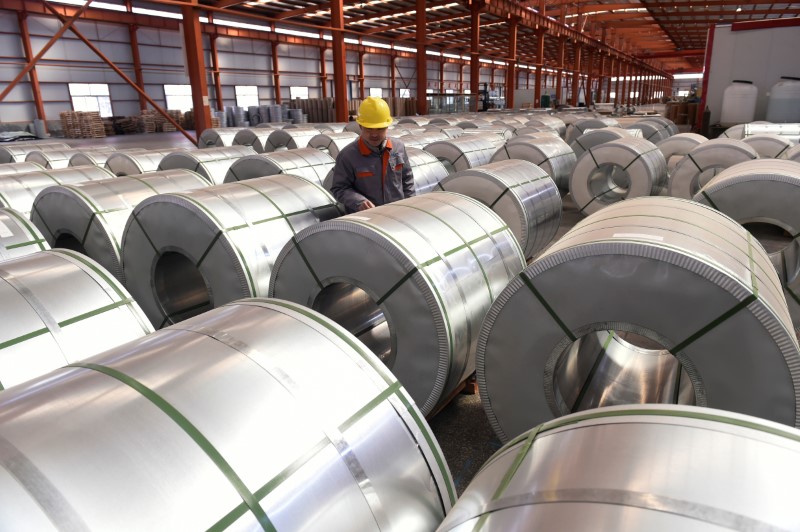By Alessandro Albano
Investing.com - Despite criticism of U.S. President Joe Biden's climate bill, the European Union and the United States have put on the table the possibility of applying new tariffs on steel and aluminum from China in an effort to combat carbon emissions and prevent, in market terms, supply-side overloading.
According to Bloomberg news agency, the idea has U.S. origins and would still be in an embryonic stage, so not yet been formally proposed, but it gives an idea of how the decoupling with China and its sphere of influence is also shifting on the climate front.
To see the framework and agreement between Washington and Brussels could take several months, according to sources cited by the agency, who point to the end of 2023 as an "optimistic timeline."
The new tariffs, therefore, are not immediate but fit into a complicated picture of international relations not only with China but also within the Western Front itself, as Brussels frowned upon the US government's $430 billion Inflation Reduction Act.
A law that includes major tax exemptions for U.S. electric vehicle manufacturers and that, European authorities say, may significantly harm European automakers.
Indeed, Ursula von der Leyen, president of the European Commission, said that the EU will adapt its state aid rules to prevent the exodus of investment triggered by the Wrath, while French Finance Minister Bruno Le Maire said, quoted by Reuters, that he and German Economy Minister Robert Habeck had begun talks with their U.S. counterparts on an exemption for all green products on the bloc.
Remember that China produces more than 60% of the world's steel and 57% of its aluminum and that both the U.S. and EU already have tariffs in place on Chinese goods, and according to Chinese customs data taken up by Reuters, last year steel exports to the U.S. accounted for 2.1% of total overseas shipments, while aluminum exports generally hovered around 5%.
The response to the news was eloquent: in Hong Kong, Aluminum Corporation of China (HK:2600) gained 1.4%, while in New York, Alcoa Corporation (NYSE:AA), and Arconic Corporation (NYSE:ARNC) lost 7.7% and 6.4%, respectively, in the wake of Biden's new climate bill.
